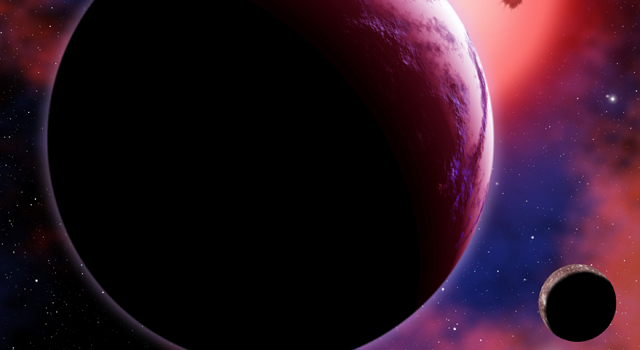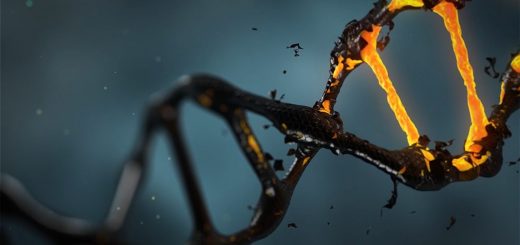Mini-Neptunes, Super-Earths and the Search for Extrasolar Planets

There are a few ways to create a habitable planet. We think the way Earth was created was as a bunch of rocks that were orbiting the Sun and all clumped together. Scientists think that later extra water was brought by asteroids. However as the search for extra-solar planets progresses we find more and more “Super-Earths” – planets that are rocky like ours (rather than gaseous like Saturn, Jupiter, Neptune and Uranus) but somewhat on the massive side. They can be up to ten times the mass of the Earth.
Nothing quite like that exists in our own solar system. While it’s possible that the rocks-clumping-together model (a.k.a the accretion model) is still valid, it’s also possible that some other mechanism is at play. Now, research published in Astrobiology suggests another way of creating rocky planets. You start with a gas giant and due to its star’s gravitational pull, it drifts slowly in towards its star. The radiation from the star strips away most of the hydrogen and helium from the planet, leaving behind a “habitable evaporated core” or HEC – our Super-Earth. This HEC should to retain a lot of water in spite of having lost lighter molecules.
This is exciting because most of the extrasolar planets we find are either large gas giants very close to their host stars (known as “hot Jupiters”) or Super-Earths, also close to their host stars. In the latter case, the host stars are usually smaller than our Sun, meaning that the region where a planet would have to be located in order for water to be liquid, rather than ice or vapour, is much closer to the star. This may have implications in the search for extraterrestrial life, as planets previously thought to be uninhabitable might actually turn out to be less desolate than we imagined.
Edited by Debbie Nicol










